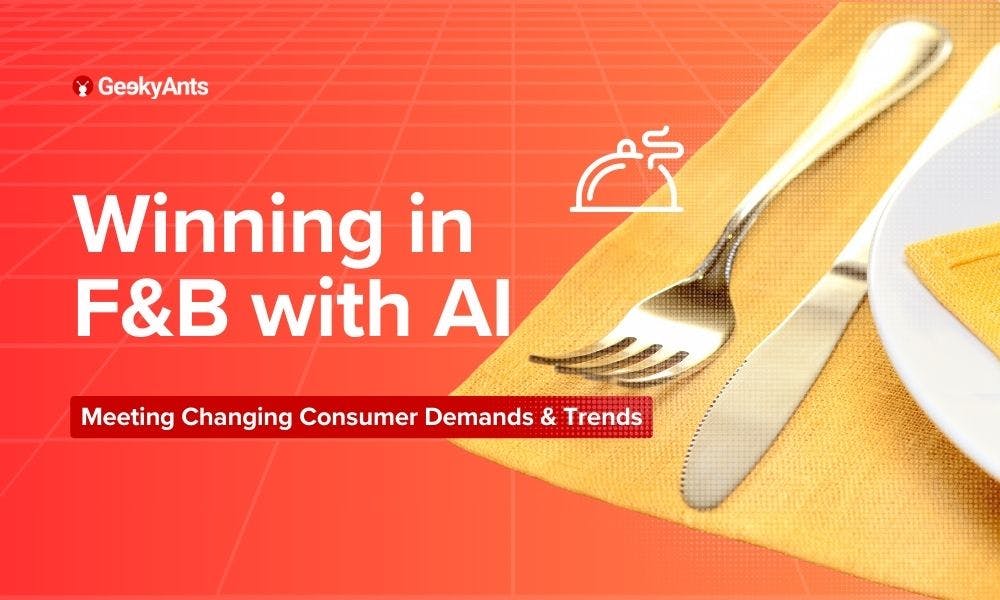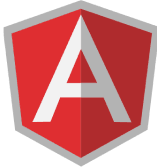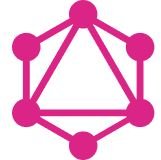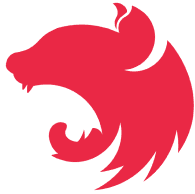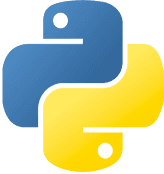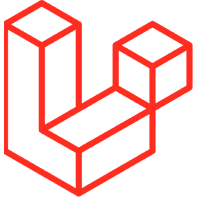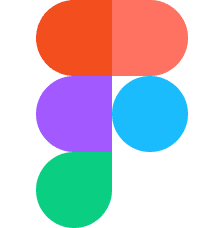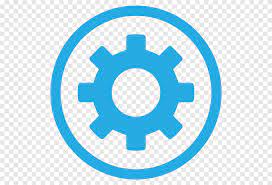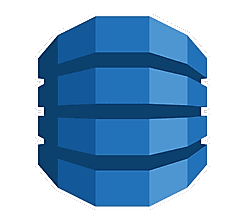F&B App Design & Development Services
Propel your F&B business to new heights with GeekyAnts custom products and solutions for multi-brand restaurants.
From food delivery app development services to engineering applications for internal operations, you can trust us to deliver the best quality solution to drive up customer loyalty and efficiency.






CASE STUDY
END-TO-END DESIGN & DEVELOPMENT SERVICES
We Help You Maximize RoI in Service Delivery, Customer Engagement, and Restaurant Operations
From food and beverage app design to end-to-end app development services, we deliver engineering applications for customers and operations. Our solutions are tailored, high-quality and enhance customer loyalty and improve operational efficiency.

Front of House (FoH) Focused innovation
- Table Turnover
- Service Charge Transparency
Restaurant Booking
- Table Bookings
- Customer experience management
Menu Innovation
- A la Carte & Entrée Sélection
- Inventory management systems
Restaurant Operation Applications
- Happy Hour Management
- Expeditor Efficiency
Back of House (BoH) Focused innovation
- Inventory Management
- Food Cost Optimization
Inventory & Ordering Applications
- FIFO & LIFO Management
- Minimum Order Quantities (MOQs)
- Purchase Orders (POs)
AI-POWERED EXPERTISE
Maximize ROI from AI-Adoption with Our F&B Industry Focussed AI-Engineering
Voice-Activated Ordering System
Table Booking & Ordering System
Predictive Wait Time Analysis
Virtual Table Booking with Layout Visualization
Virtual Dining Experience
Virtual Chef's Table Experience
Personalized Recommendations
Smart Chatbots

F&B FOCUSSED R&D BY GEEKYANTS
Interactive Virtual Reality Menu
Users can scan the interactive menu* on their mobile devices. Clicking a menu item will show a virtual model of the order live. The menu can have multiple pages and can be personalized based on need. The said menu is still in the R&D phase and we have an alpha version for demo.

CUSTOMIZED F&B DEVELOPMENT SERVICES
Delight Customers and Boost Efficiency With Our Focussed Offerings
From custom apps (for efficient food ordering and enhancing customer satisfaction) to reducing labor costs, optimizing supply chain and leverage IoT/AI — we build end-to-end app design and development services for the F&B industry that are unique to your business needs. Our offerings include end-to-end development and problem specific solutions.
Contactless Dining Apps
Restaurant Finder Apps
Table Management App
Feedback System Solutions
Loyalty Programs
Kitchen Optimization Software
Reservation Management System
Point of Sale Integration App
Menu Management App
Inventory Management Software
Supplier Management Software
Innovation Focussed Offerings
Legacy System Modernization
Innovation Management
Cloud Migration Services
Security Upgrades
Employee Management Apps
F&B INDUSTRY PORTFOLIO
Why Choose GeekyAnts As Your F&B Industry App Development Company
Our food and beverage industry experience is extensive. We work with one of the world’s largest restaurant chains as their innovation partner. Our deep F&B industry app development service expertise allows us to understand the complex challenges of your organization, such as managing multi-brand operations, optimizing supply chains, and enhancing customer engagement through technology.

AI-powered Digital Solutions
We leverage our digital expertise combined with artificial intelligence (AI) to deliver solutions such as dynamic pricing and menu optimization.
Enterprise Expertise
We specialize in developing solutions that address the specific complexities of large-scale and medium-scale food and beverage companies.
Expertise in Smart Service
Gain real-time insights into sales, inventory, and customer behavior with enterprise-level dashboards designed specifically for F&B operations.
Timely Delivery
We prioritize adherence to delivery schedules, ensuring that all apps and features are completed within the defined project timelines.
Customized Automations
We assess current operations to discover areas for automation, using AI, machine learning, IoT, and robotic process automation (RPA) to streamline processes.
Scalable Architecture
Our apps are designed with scalability in mind, with tech stacks selected to adapt to future changes in customer demand and industry shifts.
PRODUCT SHOWCASE
GeekDine: Restaurant Booking and Reservation App that Can be Customized According to Your Business
This Restaurant Booking and Reservation app caters to both diners and restaurant operation.It can be customized to build apps like OpenTable, DineOut, Resy, EazyDiner according to user requirements specifically designed for the hospitality industry.

TECHNOLOGY EXPERTISE
We Specialize in AI Solutions, Experience Design, and End-to-End Development Frameworks

GPT
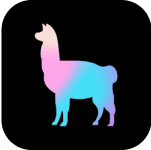
Llama Index

Prompt Engineering

Long chain
Hire Our Food and Beverage App Development Experts
Get a free discovery session and consulting to start your project today.

FAQs
Learn More About F&B Design and Development Services
At GeekyAnts, we develop a wide range of food and beverage (F&B) apps tailored to meet the growing demands of the industry and powered by the latest AI-driven features. Here’s a look at some of the key types of F&B apps we create:
- Restaurant Management Apps
These apps streamline operations like inventory management, order tracking, employee scheduling, and customer reservations. AI-powered features, such as predictive inventory management and automated scheduling, help optimize stock levels based on demand forecasts, reducing waste and improving efficiency.
- Food Delivery and Ordering Apps
We build intuitive and scalable food delivery platforms with AI-driven recommendation engines that provide personalized food suggestions based on user preferences, order history, and trends. Additionally, real-time route optimization ensures faster delivery times, improving customer satisfaction and retention.
- Customer Loyalty and Engagement Apps
Loyalty programs are crucial for customer retention. We develop apps that incorporate AI-powered customer segmentation, which helps businesses offer personalized rewards, promotions, and experiences based on customer behavior. These apps are designed to drive repeat business and improve overall customer lifetime value.
- Menu Management Apps
These apps simplify the process of updating menus across multiple locations. AI integration enables dynamic menu adjustments, such as suggesting menu changes based on ingredient availability, pricing fluctuations, and customer preferences. This is particularly useful for multi-brand restaurant chains aiming to optimize their menus in real time.
- Table Reservation and Contactless Dining Apps
Recent trends highlight the demand for contactless dining experiences. We develop apps that allow for seamless table reservations, ordering, and payments directly through the customer’s mobile device. AI-enhanced smart seating arrangements and contactless payments cater to health-conscious consumers and increase operational efficiency.
These apps focus on improving supply chain transparency and efficiency. With AI-driven supply chain analytics, restaurants and F&B companies can predict demand, manage vendor relationships, and ensure timely delivery of raw materials, reducing costs and preventing disruptions.
- AI-Powered Chatbots and Virtual Assistants
We incorporate AI-driven chatbots into apps to handle customer inquiries, process orders, and offer real-time support, ensuring a smoother customer experience. These bots can also provide personalized recommendations and address frequent customer queries, reducing the need for human intervention.
Yes, at GeekyAnts, we offer fully customized food and beverage app development solutions tailored to the unique needs of your business. Whether you're a large restaurant chain, a food delivery startup, or a multi-brand food enterprise, our team works closely with you to understand your operational requirements, business goals, and customer expectations to build solutions that deliver value.
We leverage the latest technologies, including AI, machine learning, and IoT, to create apps that provide features such as dynamic menu management, personalized customer experiences, automated inventory tracking, and real-time order management. Our development process is highly flexible, allowing us to integrate with your existing systems like POS, CRM, and ERP platforms, ensuring a seamless workflow across all your operations. Every solution is designed with scalability and user experience in mind, so your app grows with your business, adapting to market trends and customer preferences.
From food delivery platforms and reservation systems to supply chain management and AI-powered customer engagement, our customized solutions are built to optimize your business operations, increase customer loyalty, and drive revenue growth in the competitive F&B market.
The cost of developing an app for the food and beverage (F&B) industry can vary significantly based on several factors such as the complexity of the app, the features required, technology stack, and the level of customization. Here’s a general breakdown to help estimate the costs:
- Simple Food and Beverage Apps
These apps typically include basic features like menu display, order management, and customer profiles. The development cost for a simple app can range between $20,000 to $40,000, depending on the platform (iOS, Android, or both) and the design requirements.
- Mid-Range Apps with Advanced Features
Apps with additional functionalities like real-time order tracking, AI-powered recommendations, loyalty programs, and payment gateway integrations tend to cost between $40,000 to $80,000. These apps often require more complex back-end integration with existing systems like POS and inventory management.
- Complex and Fully Customized Solutions
For enterprise-level apps or multi-brand solutions with AI-driven analytics, dynamic pricing, inventory management, customer personalization, and integration with third-party services like CRM, ERP, and IoT devices, the cost can range from $80,000 to $150,000 or more. These solutions require a higher degree of customization, scalability, and sophisticated architecture to support large-scale operations.
- Ongoing Costs
In addition to the initial development cost, you should also consider ongoing costs for maintenance, feature updates, and cloud infrastructure. This could range from 15% to 20% of the development cost per year, depending on the scale of the app and the services needed.
At GeekyAnts, we offer flexible pricing models based on your specific business needs, app requirements, and desired functionalities. Our team works closely with you to provide a clear estimate and ensure the solution aligns with your budget and goals.
The time it takes to develop a food and beverage app depends on the app's complexity, features, and integration requirements. Here’s a general estimate based on various types of F&B apps and popular examples:
- Simple Food Ordering Apps (e.g., Local Restaurant Apps)
- Features: Basic features like menu display, order placement, payment gateway integration, and user accounts.
- Development Time: Around 3 to 6 months.
- Example: A small restaurant app with online ordering and payment capabilities, similar to apps for local restaurants.
- Why: These apps have straightforward functionalities and a limited number of integrations, so they can be developed relatively quickly.
- Mid-Range Food Delivery Apps (e.g., Zomato, Grubhub)
- Features: User registration, menu browsing, real-time order tracking, payment integration, customer reviews, loyalty programs, and push notifications.
- Development Time: Around 6 to 9 months.
- Example: Grubhub or Zomato, both of which offer real-time delivery tracking, reviews, and extensive restaurant listings.
- Why: These apps require more advanced features like live tracking and customer interaction elements, as well as robust back-end services, which extend the development timeline.
- Comprehensive Restaurant Chain Apps (e.g., McDonald’s, Starbucks)
- Features: Advanced features such as loyalty programs, personalized offers, mobile payments, location-based services, and integration with POS systems.
- Development Time: Around 9 to 12 months.
- Example: The McDonald's app or Starbucks app, which includes complex functionality like in-app orders, mobile payments, and loyalty rewards.
- Why: These apps require integration with internal systems like supply chain management, POS systems, and customer personalization, making development more time-consuming.
- Enterprise-level F&B Apps (e.g., UberEats, DoorDash)
- Features: Real-time delivery tracking, complex algorithms for delivery routing, AI-powered recommendations, dynamic pricing, multi-restaurant support, and integrations with various third-party services.
- Development Time: Around 12 to 18 months or more.
- Example: UberEats or DoorDash, both of which involve highly scalable back-end systems, real-time order and delivery management, and sophisticated AI-driven features.
- Why: These apps are large-scale with complex functionalities and high-performance demands, requiring extensive development, testing, and optimization.
Factors That Impact Development Time:
- Features and Complexity: The more complex the app, the longer it will take to develop. Adding features like AI-powered recommendations, real-time tracking, or custom POS integrations significantly increases the development timeline.
- Third-party Integrations: Apps that need to integrate with external systems like CRMs, POS systems, or ERPs require extra time for development and testing.
- Platform: Developing for multiple platforms (iOS and Android) or creating a cross-platform solution with technologies like React Native can extend the development time.
- Customization: The more custom-built solutions and tailored features required, the longer it takes to develop.
At GeekyAnts, we follow an agile development approach, meaning we can deliver MVPs (Minimum Viable Products) faster while continuing to add more advanced features post-launch to meet your timeline and business goals.
Yes, your food and beverage app developed by GeekyAnts will be fully compatible with both iOS and Android devices. We use cutting-edge technologies like React Native and Flutter to create cross-platform apps, ensuring that a single codebase works seamlessly on both operating systems. This approach reduces development time and costs while maintaining a consistent user experience across devices.
If you prefer a native app, we can also build separate versions for iOS and Android using Swift for iOS and Kotlin or Java for Android. In both cases, we ensure that the app performs optimally on each platform, making it accessible to a wider audience without sacrificing quality or functionality.
Yes. We tailor each food delivery app solution to the unique needs of your restaurant. Whether you're a small family-owned business or a growing local chain, we work closely with you to understand your operational workflows, customer preferences, and business goals. This enables us to develop a highly customized app that aligns with your specific requirements, such as customized menu layouts, specialized delivery zones, or personalized loyalty programs.
We ensure that every feature, from online ordering to payment processing, is designed to fit your restaurant's specific model, whether it's dine-in, takeaway, or delivery-focused. Our approach ensures that your app not only enhances the customer experience but also optimizes internal processes, giving you a competitive edge in the market.
To develop a food delivery app, we would use a technology stack that ensures scalability, security, and performance while providing an excellent user experience. Here’s a breakdown of the technology stack we typically recommend for food delivery apps:
- Frontend (User Interface)
- React Native or Flutter: These are powerful cross-platform development frameworks that allow us to build a single app for both iOS and Android, reducing development time and ensuring a consistent user experience across platforms.
- React.js: If a web app is required in addition to mobile, React.js is ideal for building highly interactive and responsive user interfaces.
- Backend (Server and Database)
- Node.js: Known for its high performance and scalability, Node.js is often our choice for building the server-side of the app, especially for real-time features like live order tracking.
- Express.js: A fast and flexible Node.js web application framework that helps in setting up robust API services.
- GraphQL or RESTful API: These APIs allow seamless communication between the frontend and backend, enabling efficient data fetching and updates for features like menu browsing, user authentication, and order placement.
- Python (Django/Flask): If the app needs advanced data processing or machine learning integrations, Python can be utilized on the backend.
- Database
- MongoDB or PostgreSQL: MongoDB, a NoSQL database, is useful for handling large amounts of unstructured data, such as customer preferences and order history. PostgreSQL, a relational database, offers high performance and reliability, especially for transactional data such as orders, payments, and inventory.
- Firebase: For real-time data sync (like live tracking of orders) and cloud storage, Firebase can also be used.
- Cloud Hosting and Infrastructure
- AWS (Amazon Web Services): For hosting and infrastructure management, AWS provides reliable, scalable, and secure services. Features like Elastic Beanstalk for deployment and S3 for storage ensure the app can handle growing traffic and data.
- Google Cloud or Microsoft Azure: Alternatives to AWS that offer similar cloud services, including database hosting, server scaling, and backup management.
- Payment Gateway
- Stripe, Razorpay, or PayPal: These are popular payment gateways that support multiple payment options (credit cards, wallets, etc.), providing secure and seamless transactions for users.
- Real-Time Features
- Socket.io: Used for real-time bidirectional communication between clients and servers, Socket.io is great for features like live order tracking and real-time delivery updates.
- AI/ML Features
- TensorFlow or PyTorch: If AI-powered features like personalized food recommendations or dynamic pricing are required, these frameworks help in integrating machine learning algorithms into the app.
- Notifications
- Firebase Cloud Messaging (FCM) or Twilio: For sending push notifications to users about order status updates, promotions, or delivery tracking.
- DevOps and CI/CD
- Jenkins or GitLab CI/CD: To ensure smooth development, deployment, and continuous integration, we use tools like Jenkins or GitLab CI/CD to automate testing, build pipelines, and deployment.
- Security
- OAuth 2.0 and JWT (JSON Web Tokens): For secure user authentication and authorization.
- SSL/TLS Encryption: Ensures secure communication between the app and servers.
This technology stack allows us to build a food delivery app that’s scalable, secure, and capable of handling large amounts of real-time data, ensuring an excellent user experience and efficient backend processes.
We develop both web apps and websites specifically tailored for the food and beverage business. We understand that a strong online presence is crucial in today's market, and our solutions are designed to meet the unique needs of restaurants, cafes, food delivery services, and other F&B businesses.
Web App Development:
We create web apps that allow customers to browse menus, place orders, make reservations, and track deliveries in real time. These web apps are fully responsive, ensuring they work seamlessly across all devices—desktops, tablets, and mobile browsers. Features like online ordering, payment integration, loyalty programs, and AI-powered recommendations can also be incorporated to improve user experience and engagement. For backend management, we can integrate features like inventory tracking, order management, and customer analytics to help your business run smoothly.
Website Development:
For websites, we build custom, SEO-friendly platforms that effectively showcase your brand, menu, and services. Whether you're a small restaurant looking to increase online orders or a multi-brand chain requiring complex functionality, we design websites that enhance your digital footprint. With visually appealing designs, fast loading times, and seamless e-commerce capabilities, we ensure your website serves as an extension of your business, driving both traffic and sales.
Our team works with the latest technologies like React.js, Next.js, Vue.js, and WordPress (if required for content-based websites) to create stunning, high-performance web solutions. Whether you're looking for an integrated omnichannel approach or simply a standalone web presence, we can deliver a tailored solution for your F&B business.
Mobile apps bring significant advantages to the food and beverage sector by streamlining operations, enhancing customer engagement, and boosting revenue. With features like online ordering, real-time delivery tracking, and personalized loyalty programs, businesses can offer a more convenient and seamless experience to customers, leading to increased retention and repeat orders.
From a business perspective, mobile apps reduce operational inefficiencies by automating tasks such as inventory management and order processing, which directly translates into lower overhead costs and higher profit margins. Additionally, apps provide valuable data on customer behavior, allowing businesses to personalize promotions and drive targeted marketing efforts, further improving ROI.
With in-app promotions, businesses can increase sales during off-peak times, directly boosting revenue by up to 20-30%. The scalability of mobile apps ensures long-term growth potential, providing a platform that can adapt as the business expands, resulting in sustainable returns on investment over time.
Food and Beverages App Development

How AI Loyalty Programs Improve Customer Retention in U.S. Restaurants

Scan to Pay vs Tap to Pay: What is Best for Quick Service Restaurants

How to Build a Cloud Kitchen App in the US with Real-Time Orders, Delivery, and Brand Control

Integrating Payment Gateway in Food Delivery Apps: A Step-by-Step Guide
